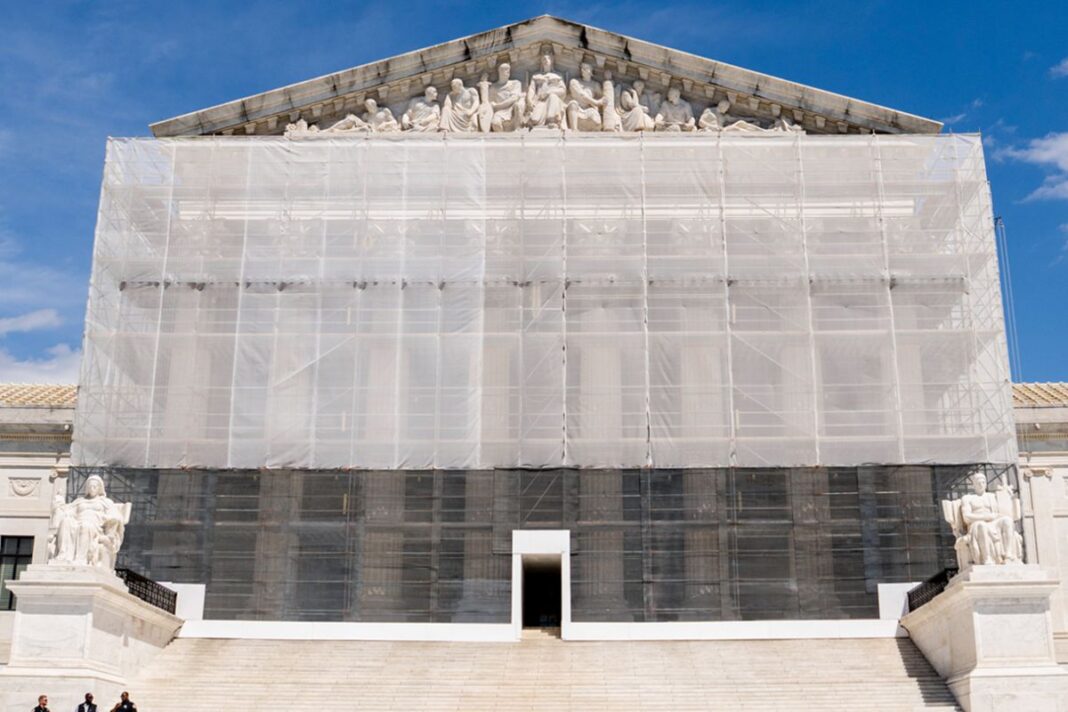The justices heard cases on gender, Obamacare, pornography regulation, and other issues ahead of the summer recess.
The Supreme Court is heading into its summer recess, which means the justices will be issuing a series of hotly-anticipated decisions throughout June. These decisions could yield significant precedents that ripple through the national political environment, impacting congressional and executive agendas alike.
So far, the court has already released rulings on e-cigarettes, a deportation case, ghost guns, and TikTok.
Here are the decisions to look out for as the term comes to a close.
1. ‘Gender-Affirming Care’ for Minors
2. Nationwide Injunctions, Birthright Citizenship
3. Sex and Gender in School Libraries
4. Obamacare Preventive Care Panel
5. Age Verification for Pornography Websites
6. Medicaid Funding for Planned Parenthood
7. Mexico’s Lawsuit Against Gun Companies
8. Palestinian Terrorists
9. Nuclear Waste Storage
1. ‘Gender-Affirming Care’ for Minors
In December 2024, the justices were called upon to enter the gender debate by hearing arguments over Tennessee’s attempt to prevent “gender-affirming care” from being provided to minors. The case focused on the use of cross-sex hormones and puberty blockers, rather than surgical procedures, but raised constitutional questions common to both sets of procedures.
Weeks before leaving office, the Biden administration argued in United States v. Skrmetti that Tennessee’s law constituted a form of sex-based discrimination that violated the Equal Protection Clause in the 14th Amendment.
Tennessee argued its law was needed to protect underage patients from what it considers to be risky, unproven medical interventions, and that the U.S. Court of Appeals for the Sixth Circuit correctly ruled the law was constitutional.
The Supreme Court seemed inclined to uphold the Sixth Circuit ruling. Some justices seemed hesitant about viewing Tennessee’s law as an unconstitutional form of discrimination, while other justices seemed inclined to take that position. Justice Clarence Thomas asked why the court shouldn’t see the law as an age-based classification rather than a sex-based classification.
2. Nationwide Injunctions, Birthright Citizenship
Lawsuits challenging President Donald Trump’s agenda have led to federal judges issuing injunctions on a range of policies. In turn, the administration has accused these judges of overstepping their authority, sparking a debate about the separation of powers.
The Supreme Court justices looked at three lower court orders that issued nationwide blocks on Trump’s executive order on birthright citizenship. Lawyers representing the administration argue the 14th Amendment does not require that children of illegal immigrants be automatically deemed citizens from birth.
On May 15, the Supreme Court heard oral arguments in Trump v. CASA Inc., and while it is unclear how the justices might rule, they seemed more inclined to address the lawfulness of the various court orders, as opposed to the legality of Trump’s policy.
Justices Sonia Sotomayor and Elena Kagan seemed to think the administration had misinterpreted the 14th Amendment. “As far as I see it, this order violates four Supreme Court precedents,” Sotomayor said.
Justice Clarence Thomas seemed the most sympathetic to the Trump administration’s position, and suggested that nationwide injunctions do not have a solid historical basis. “So we survived until the 1960s without universal injunctions?” Thomas said.
“So we survived until the 1960s without universal injunctions?” Thomas said.








